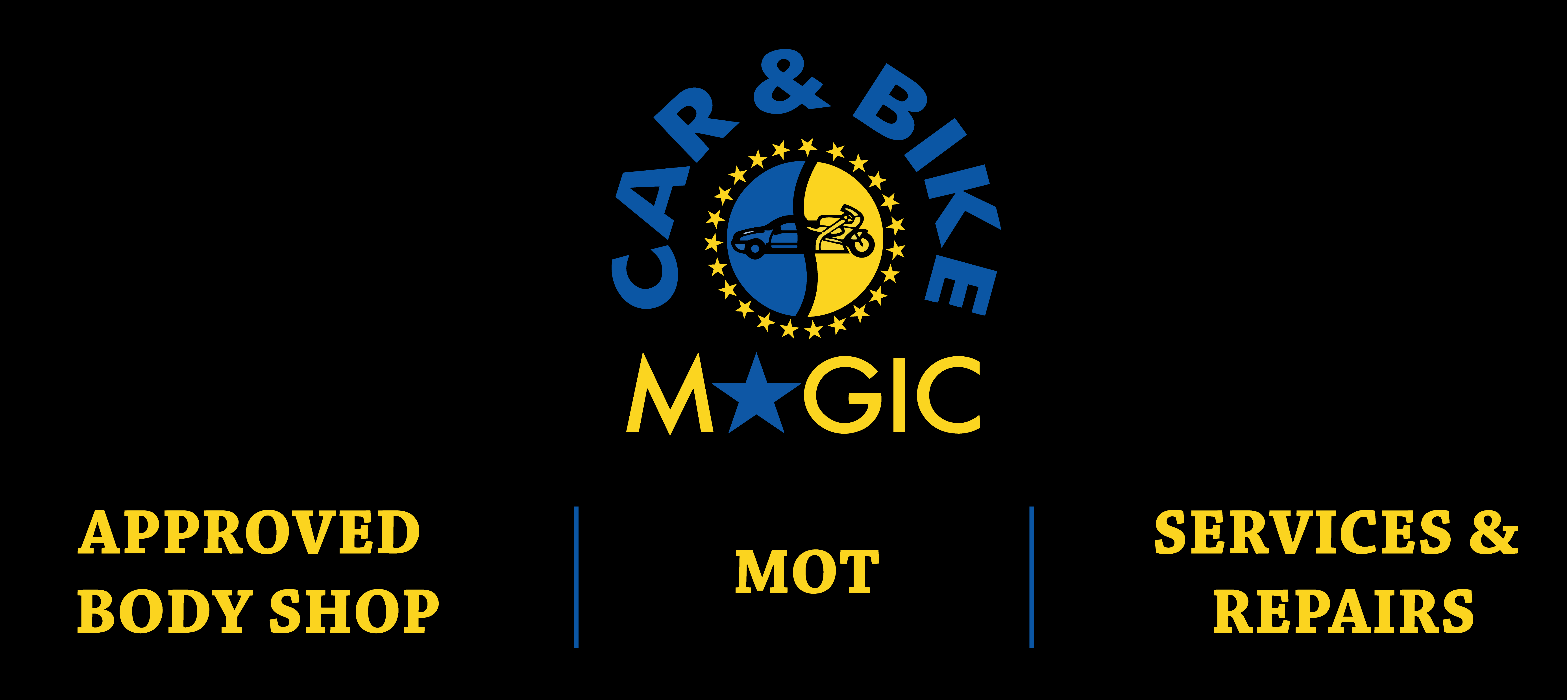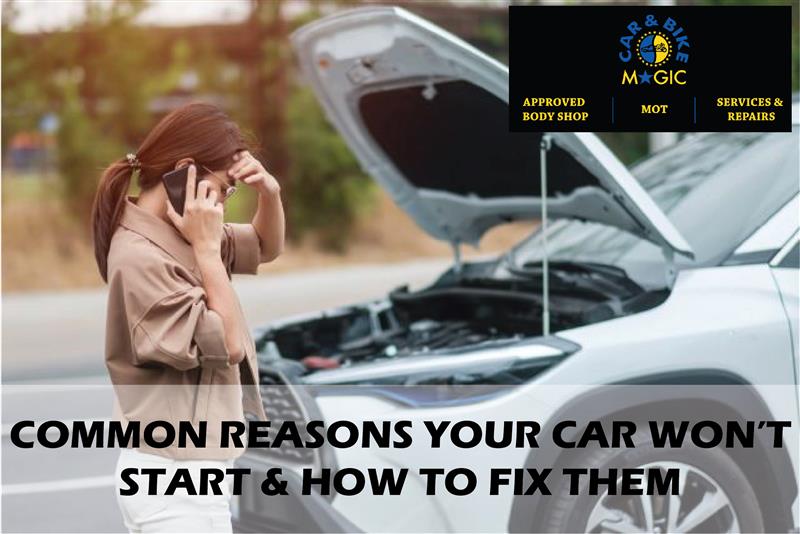Nothing ruins your day faster than turning the key and hearing nothing. Or worse, a slow clicking sound followed by silence. Whether you’re late for work, heading to pick up the kids, or planning a weekend getaway, a car that won’t start can leave you feeling frustrated and stranded. The good news? Many starting issues are common—and often preventable.
In this guide, we’ll explore the most common reasons your car won’t start, how to troubleshoot them, and what you can do to get back on the road. We’ll also cover simple fixes you can try yourself before calling a mechanic. By the end, you’ll know exactly what’s going on when your car won’t start—car battery issues, car starter problems, or ignition switch troubles.
Dead or Weak Car Battery
A dead battery is the number one reason most drivers find their car won’t start. Your battery powers the starter motor and ignition system, so if it’s drained, nothing works.
If you hear a faint clicking sound when you turn the key (the car won’t start), it’s usually a sign of low voltage. In some cases, you may get no sound at all (the car won’t start, no sound), which indicates a completely flat battery.
How to Fix It:
- Jump-start your car using jumper cables and another vehicle.
- Check your battery terminals for corrosion—clean them if needed.
- If your battery keeps dying, replace it and have your alternator tested.
Pro Tip: If you live in a cold climate, your battery may drain faster in winter. Keep it charged, especially overnight.
Faulty Starter Motor
If your battery is fine but your car won’t crank, you might have car starter problems. The starter motor’s job is to turn your engine over—if it fails, your vehicle won’t start, even though other electronics work.
Common signs include:
- Loud clicking but no cranking.
- A single loud click followed by silence.
- Intermittent starting issues.
How to Fix It:
- Tap the starter gently with a wrench—sometimes this frees it temporarily.
- Check the wiring to the starter for damage or loose connections.
- If the starter is worn out, you’ll need a replacement.
If you’re in Durham, professional help from Car and Bike Magic’s car repair services can save you time and frustration.
Ignition Switch Problems
The ignition switch is the gateway between your key and the engine. If it’s faulty, your car won’t start after the key turns, even if the battery and starter are fine.
Signs of car ignition switch problems include:
- Dashboard lights flickering or not coming on.
- The engine stalls shortly after starting.
- No sound from the starter when the key is turned.
How to Fix It:
- Check if your accessories (radio, lights) work when the key is in the “On” position.
- If they don’t, the ignition switch is likely bad.
- Replacing the switch requires moderate mechanical skill or a mechanic.
Fuel System Issues
Even if your starter works, your car needs fuel to run. Your car won’t crank or start if no fuel gets to the engine.
Causes can include:
- Empty the gas tank (it happens more often than you think).
- Clogged fuel filter.
- Failing fuel pump.
How to Fix It:
- Check your fuel gauge (and make sure it’s accurate).
- Replace your fuel filter if it hasn’t been changed in a while.
- If the fuel pump has failed, it will need professional replacement.
Car Immobilizer or Security System Malfunction
Modern cars come with immobilizers to prevent theft. While helpful, they can sometimes malfunction, leaving you with car immobilizer issues.
If your immobilizer doesn’t recognize your key, your car won’t start after the key turns—even if everything else is fine.
How to Fix It:
- Try your spare key.
- Replace the key fob battery.
- If all else fails, you may need dealer reprogramming.
Alternator Failure
Your alternator charges your battery while the car is running. If it fails, your battery will drain quickly, and your car won’t start.
Signs include:
- Dim headlights.
- Electrical issues while driving.
- The battery warning light is on your dashboard.
How to Fix It:
- Test your alternator output with a multimeter.
- Replace the alternator if it’s not charging correctly.
Weather-Related Problems
Extreme cold can thicken your engine oil, making it harder for the starter to turn the engine. Excessive heat can also damage battery cells, leading to a car that doesn’t start, a clicking noise, or complete silence.
How to Fix It:
- Use the correct engine oil for your climate.
- In cold areas, use a block heater to keep the engine warm.
- Keep your battery insulated in winter.
Final Thoughts
When your car won’t start, it can feel like a crisis—but in most cases, the problem is fixable and straightforward. From a dead battery to car ignition switch problems, many causes can be resolved with basic troubleshooting.
For ongoing car care, regular maintenance and checkups are key. If you want to upgrade your ride while keeping it functional, explore stylish car interior customization ideas to make your car truly yours.
FAQs
1. Why is my car not starting, but the battery is fine?
It could be due to a bad starter, ignition switch, or fuel delivery issue.
2. What does it mean when I hear clicking, but my car won’t start?
This usually means your battery doesn’t have enough power to turn the starter.
3. Can a bad alternator cause my car not to start?
Yes—if your alternator fails, your battery won’t charge, and your car will eventually die.
4. Why won’t my car start in cold weather?
Cold thickens the oil and drains battery capacity, making starting harder.
5. How do I fix an immobilizer issue?
Try your spare key, replace the fob battery, or get it reprogrammed at a dealer.

